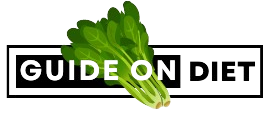I understand that there is no one-size-fits-all approach to a healthy lifestyle. Any diet plan should be customized to suit individual needs, taking into account factors like lifestyle, fitness goals, and health conditions. Before starting a bodybuilding diet, it’s advisable to consult with a healthcare provider or registered dietitian, especially if you have underlying medical concerns.

What is a Bodybuilding Diet?
A bodybuilding diet is typically followed by athletes, weightlifters, and fitness enthusiasts aiming to build muscle and reduce body fat. This diet plan involves increasing protein and overall calorie intake while incorporating regular strength training.
While similar to a balanced diet, the bodybuilding diet emphasizes meal quantity and timing during different phases of training. Some athletes also turn to supplements for muscle growth, though nutritionists recommend prioritizing whole foods.
Key Components of a Bodybuilding Diet
- Protein: Lean protein is vital for muscle protection and growth.
- Carbohydrates: Essential for fueling workouts and preventing muscle breakdown.
- Fats: Healthy fats are included to maintain overall health.
- Fruits and Vegetables: Antioxidant-rich foods are crucial for recovery and overall health.
What Can You Eat on a Bodybuilding Diet?
A bodybuilding diet requires the right balance of macronutrients to support muscle growth and fat loss. Here’s a quick breakdown of what to eat:
Lean Protein
Lean protein refers to protein sources that are low in fat. Common examples include skinless poultry, fish, tofu, beans, and egg whites. These foods are rich in protein but contain minimal saturated fats, making them ideal for muscle building, weight management, and overall health improvement.
- Found in chicken, fish, lean beef, and plant-based options like tofu or legumes.
Complex Carbohydrates
Complex carbohydrates are nutrient-rich carbs made up of long chains of sugar molecules. They provide a steady source of energy as they digest slowly. Common sources include whole grains, legumes, vegetables, and starchy foods like sweet potatoes. Unlike simple carbs, they are rich in fiber, vitamins, and minerals.
- Found in whole grains, oats, sweet potatoes, and quinoa are recommended for sustained energy.
Healthy Fats
Healthy fats are unsaturated fats that support heart health, brain function, and overall well-being. Found in foods like avocados, nuts, seeds, olive oil, and fatty fish, they include monounsaturated and polyunsaturated fats. Unlike saturated or trans fats, healthy fats help reduce bad cholesterol and inflammation in the body.
- Found in nuts, seeds, and oils.
Fruits and Vegetables
Eat antioxidant-rich produce like leafy greens, berries, and cruciferous vegetables.
Hydration
Hydration is the process of maintaining adequate water levels in the body for optimal functioning. Proper hydration supports digestion, regulates body temperature, and helps transport nutrients. It’s essential for overall health, preventing dehydration, which can lead to fatigue, headaches, and impaired physical and cognitive performance.
- Water is the primary source.
Macronutrient Ratios for Bodybuilding
Depending on your phase (bulking or cutting), the macronutrient ratios will vary:
Bulking Phase
The bulking phase in bodybuilding is a period where individuals aim to gain muscle mass by consuming more calories than they burn. This phase involves increased intake of protein, carbohydrates, and fats, along with intense weight training. The goal is to build muscle, though some fat gain may occur during this phase.
- Protein: 15-20%
- Carbohydrates: 50-60%
- Fats: 20-30%
Cutting Phase
The cutting phase in bodybuilding is a phase focused on reducing body fat while preserving muscle mass. During this period, calorie intake is reduced, particularly carbohydrates and fats, while protein intake remains high. The goal is to achieve a lean, defined physique by combining a calorie deficit with strength training and cardio.
- Protein: 20-25%
- Carbohydrates: 23-60% (depending on tolerance)
- Fats: 15-20%
Meal Timing and Workout Fuel
Meal timing is crucial in a bodybuilding diet. Here are a few tips:
- Pre-workout fuel: Eat carbohydrates 30 minutes before exercise.
- During long cardio sessions: Use gels or sports drinks for fuel.
- Post-workout recovery: Eat a 3:1 ratio of carbs to protein, such as chocolate milk.

Pros and Cons of a Bodybuilding Diet
Pros:
- Balanced Nutrition: Emphasizes nutrient-dense foods, lean proteins, and healthy fats.
- Effective for Muscle Gain: When followed correctly, this diet can help build muscle and improve strength.
- Improved Discipline: Helps develop better eating habits and planning.
Cons:
- Complex and Time-Consuming: Meal prep and macronutrient calculations can be overwhelming.
- Potential for Unhealthy Behaviors: Strict cutting phases may lead to disordered eating patterns.
- Not Suitable for Weight Loss: It’s not ideal for those looking to lose weight as calorie consumption is typically increased.
Is a Bodybuilding Diet Right for You?
A bodybuilding diet can be a powerful tool for those looking to gain muscle and improve fitness. However, it’s not ideal for everyone, particularly those focused on weight loss. Remember, individual needs vary, and it’s best to consult a dietitian or healthcare provider before starting any new diet plan.
By optimizing your meal timing, focusing on nutrient-dense foods, and balancing macronutrients, a bodybuilding diet can help you reach your muscle-building goals. Just ensure to approach it mindfully and with the necessary guidance.
